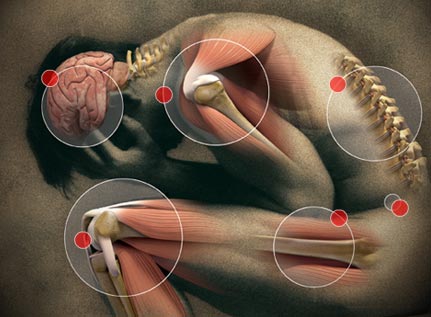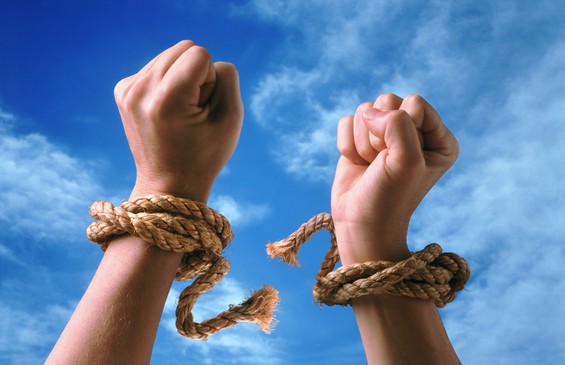I’m a sufferer of working-class hero syndrome, a condition that makes me look down on everyone who doesn’t work as hard as me, all while wasting hours on work that proves fruitless.
Mood music:
http://youtu.be/KLe2pA5KTIE
My favorite cinematic version of a working-class hero is Quint from the movie JAWS, who relentlessly needles boat mate Hooper for being rich and having a bunch of excess gadgetry to do his job. Of course, Hooper survives while Quint gets eaten by the shark.
The disease takes different forms.
There’s the white-collar working-class hero who thinks he-she is so much better than the person bagging groceries. I probably fall closer into that category, because I’ve often labored under the delusion that working 80 hours a week in journalism made me better than everyone else.
There’s the blue-collar variety who will look down at the guy in the desk job because that person isn’t out there getting dirty and operating big, dangerous machinery.
The common symptoms:
–Moments of extreme irritability from too much work and too little sleep.
–A tendency to dive into a self-righteous rage at the drop of a hat, blaming all the problems of the world on everyone but yourself. This usually leads to many hours spent complaining about people at work, in your family and in your town.
–An addictive personality that grows more ravenous with each of those rage moments. You do more drugs, drinking and binge eating to comfort yourself and hold it together, all while carrying on with the belief that you’re somehow better than the people who look at you with worried eyes.
–A tendency to lie about how exciting your job is and how well-payed you are upon learning that the person you’re talking to is better payed and has a more exciting job than you.
I’m pretty sure I got this disease from my father, who allowed the family business to become the center of his universe. He didn’t have a choice. My father was the middle child of his generation, but he was the only son. My grandfather, who came off a boat from the former Soviet Union with all the typical old-school values, expected the world of my father. As my grandfather descended deep into old age and illness in the mid-1960s, my father became increasingly responsible for the family business.
My father always had the attitude that you were useless unless you were working 24-7. He once joked that he was indeed prejudiced. “I hate lazy people,” he’d say.
I started my life as the youngest of three kids, the proverbial baby of the family. My late brother Michael was the oldest and, as such, was the kid my father expected the most from.
Michael was encouraged to chart his own course and was studying to be a plumber. But he was expected to help out with the family business and do a lot of the grunt work at home.
I was the baby, and a sick and spoiled one at that. I came along almost three years after my sister Wendi, and by age eight I was in and out of the hospital with dangerous flare ups of Crohn’s Disease. I got a lot of attention but nothing hard was expected of me. I was coddled and I got any toy I wanted.
The result was a lower-than-average maturity level for my age. At age 10 I acted like I was 5 sometimes. I would crawl into bed with my father for snuggles, just like a toddler might do.
My maturity level hadn’t changed much by the time I hit 13. I probably regressed even further right after my brother died. But as 1984 dragged on, I was slowly pulled into the role of oldest son.
All the stuff that was expected of my brother became expected of me, and I wasn’t mentally equipped to deal with it. My brother had a lot of street smarts that I lacked.
As I descended into my confusing and angry teen years, I would be sent on deliveries for the family business. I’d get flustered and lose my sense of direction. One time my father sent me to Chelsea for a package. It was 4:30 and the place I was going to was closing at 5. I got there at 5:10 and had to drive back to Saugus without a package. I felt humiliated and ashamed.
As I reached my 20s all that immaturity and feeling of inadequacy hardened into an angry rebellious streak. I started getting drunk and stoned a lot and would hide behind boxes in my father’s warehouse, chain-smoking cigarettes and binge eating while everyone else did the dirty work.
And yet working-class hero syndrome took hold anyway.
Because I was going to college, I developed the idea that I was better than the guys I worked with. Learning how to write and crash-study for days at a time made me feel like I was the hard worker who deserved life’s biggest prizes.
After college I dove head-first into a journalism career and put in 80 hours a week. I worked so many hours that I began to lose my health. I binged regularly and ballooned to 280 pounds. I lost track of family and friends.
By the time I began my big turnaround, I didn’t have many friends left.
I manage the disease better than I used to. I’ve forced more personal time into my schedule and I stopped working 80 hours a week once I realized I’m better at my job when I cut those hours in half.
But it still surfaces on a regular basis.
When I’m running my kids to appointments all over the place and cleaning the house from top to bottom, I tend to see it all as part of the working-class hero’s life.
When someone tells me about their job and it isn’t something I would choose to do, I sometimes catch myself thinking I’m better.
The remedy is a daily look in the mirror and a lot of prayer.
Work-life balance has become the Holy Grail. But I’m still digging around for it.
When I find it, I’ll let you know.










